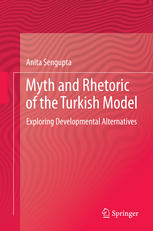

Most ebook files are in PDF format, so you can easily read them using various software such as Foxit Reader or directly on the Google Chrome browser.
Some ebook files are released by publishers in other formats such as .awz, .mobi, .epub, .fb2, etc. You may need to install specific software to read these formats on mobile/PC, such as Calibre.
Please read the tutorial at this link: https://ebookbell.com/faq
We offer FREE conversion to the popular formats you request; however, this may take some time. Therefore, right after payment, please email us, and we will try to provide the service as quickly as possible.
For some exceptional file formats or broken links (if any), please refrain from opening any disputes. Instead, email us first, and we will try to assist within a maximum of 6 hours.
EbookBell Team

0.0
0 reviewsThe volume discusses what the Turkish Model, or Turkish Development Alternative, was and why it was promoted in the Central Asian republics immediately following the dissolution of the Soviet Union. It argues that the Turkish Model was a myth that transferred the ideal of a ''secular, democratic, liberal society'' as a model for the post Soviet Turkic world and in the process encouraged a ''Turkic" rhetoric that emphasized connection between the two regions based on a common ancestry. The volume begins with an understanding of the reality of the Model from a Turkish perspective and then goes on to examine whether the Turkic world as a "cultural-civilizational alternative" makes sense both from a historical as well as contemporary perspective. It concludes by looking at the re-emergence of the Model in the wake of the events in West Asia in early 2011 and examines how in the light of a search for options the Turkish Model is once again projected as viable.